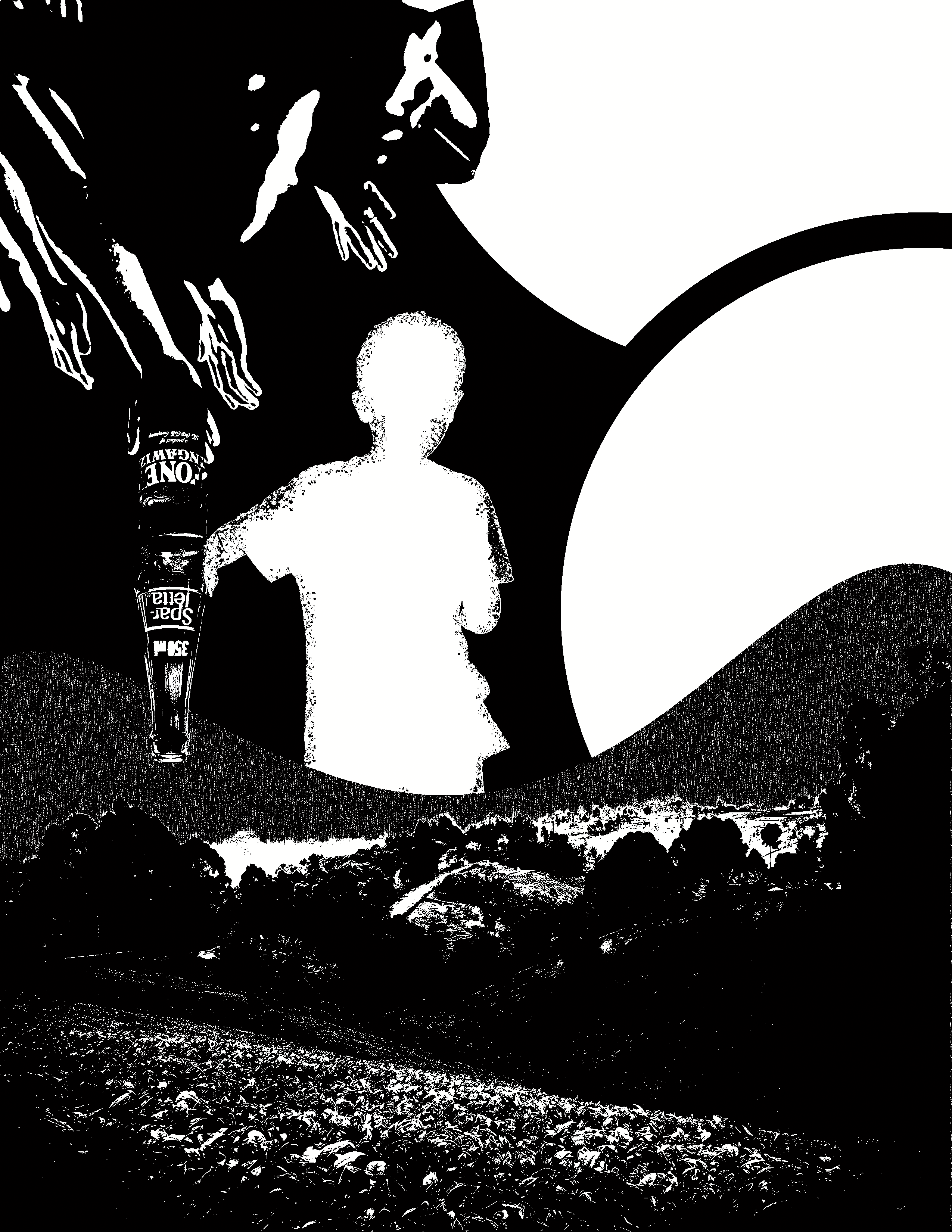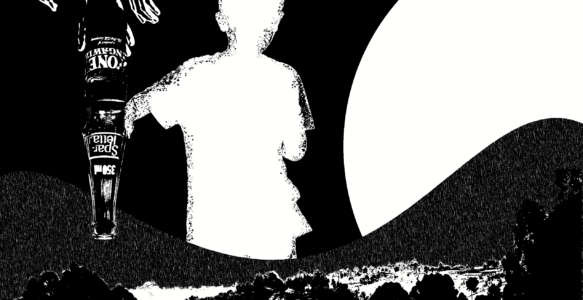a body is gripping the banisters, looking outside and far, beyond the field of maize, yellow hairs fluttering, is a road swishing and vrooming with the occasional car. Where the cars are going who is driving them and whence they are from are wonderings that the gripping-banister-looking-outside-body conjectures. Behind are wooden desks, scratched with compasses to immortalize presences, names; to mark. Behind the desks is a wall shaping the room and beyond the wall, well, are shouts of bodies, young and freed by a bell, running and shouting and arguing and laughing and chatters and life. Beyond, beyond, are buildings and a field and a dining hall that will soon be filled with hungry bellies; hands expectant with plates and spoons that are always in pockets.
Once, this body walked beside a bigger older one, a figure carrying a metal box with possessions along the road that had been watched so many times, had been traversed again and again in waves of school semesters, and now – was being traversed the last time: if not in a real sense because the future is not as definite as lived pasts, then in a symbolic one. There is something about ends, about shame, about a mother working hard far away to finance a son, about shoes gathering up red dust as these two bodies, younger and bigger, walked to spare, walked to catch a bus, bundled up with scents of work and worn out leather, that leaves the town at the end of the road, back to simpler lives, where books are in living trees and films in the mouths of people who are home.
Now the body is walking along a dusty road again, a metal box with belongings again, and accompanying: a mother, an aunt, weight of dreams. Trucks digging up the road, making a highway, bellow and gather up clouds of dust, and soon, this body will walk across the road on a footbridge, cars zooming below in a city that tests, that alludes, that strips, that offers, that pities and pushes. This body will rush up this footbridge with a spoon in pocket, hungry for rice and beans, as is the multitude that rushes along.
A living body moves – thinks? In a act of rebellion, a body jumps over a wall with broken glasses atop and another body jumps, and another and another. The four, in glee and angst, rush, one of them scratched by a glass shard; a small price to pay for sneaking out the school to go home, for rebelling, for the temptations of the city, for the grandeur. That Sunday, upon return, punishments; to wash a hall, wipe down all the surfaces, pay for ignoring rules, neglecting rules? Who do you think you are?
when tables abounded with chicken and chapatis, stew and cakes and streams of soda, what a banquet it was! The spoons lost function in the fervor as hands, fingers, wrists dove and tears and fulcrumed sustenance into bodies, into tongues that would memorialize taste and bellies that would remain full for the night, as conversations flowed and exploits were shared – ati who was the one whose parents had driven in with the latest Mercedes? Or did you see the sister to nani[1]? Or, how nani’s head was shining like a French horn when he went to receive the prize from the beautiful teaching assistant?
a body is running in rain: between the hanging lines sparse with uniforms and garments that will find their way to new owners every week. A body is being rained on, young, years ago, in gumboots running from school to a mother’s warm tea. A body is willing the rain, in early twenties, in the crepuscular of dawn as legs walk off a head heavy with worlds. A body is watching rain, gripping the metal mesh of a kitchen window; in the background: a mother on a low stool blowing on fire to warm water to milk and bathe, and a grandmother whistling a tune on Jesus being their through-all-time friend.
a body is…[i]
[1] So and so
[i] There is only so much context that can be given, so I will elucidate in-part. This is on memories, on what we are beyond bodies and in relation to others, and on what we choose to remember. But then again, isn’t that all writing?

